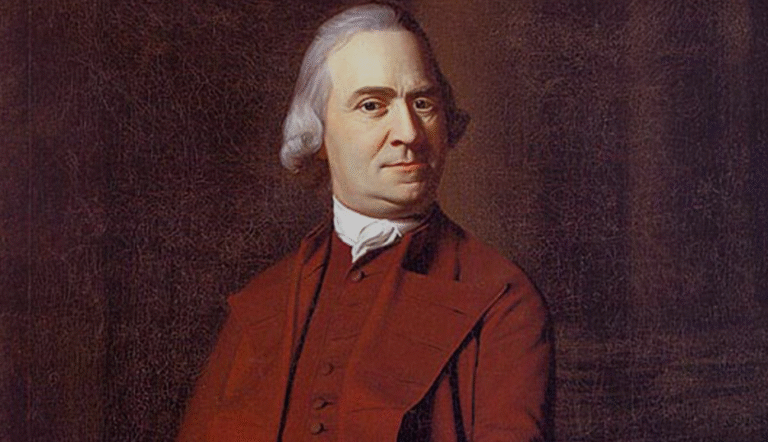Introduction
Imagine a world where religious freedom was dangerous, democracy was fragile, and tolerance was rare. Now picture one man daring to challenge that world—and succeeding. That man was William Penn, the Quaker visionary who not only founded Pennsylvania but also left a legacy of liberty that helped shape America itself.
If you’ve ever wondered, “Who was William Penn, and why does he matter today?”—this blog is your guide.
William Penn: Who Was He?
William Penn (1644–1718) was an English Quaker, political philosopher, and the founder of Pennsylvania. More than just a colonial leader, Penn was a pioneer of religious tolerance, democratic governance, and fair treatment of Native Americans—values centuries ahead of his time.
Early Life and Conversion to Quakerism
- Born in London, 1644, to Admiral Sir William Penn.
- Educated at Oxford, where he became drawn to nonconformist ideas.
- At 22, Penn converted to Quakerism, a radical Christian movement emphasizing equality, simplicity, and peace.
This decision had consequences. Quakers were often imprisoned, ridiculed, and excluded. Penn himself was jailed multiple times for his beliefs. Yet, his defiance made him stronger.
Psychological note: Readers resonate with Penn’s courage because it reflects a universal human desire—to stay true to oneself despite overwhelming pressure.
Penn’s Vision: A “Holy Experiment”
Penn dreamed of creating a colony that would embody freedom of conscience, fairness, and harmony.
When King Charles II repaid a debt owed to Penn’s father by granting William a vast tract of land in America, Penn saw his chance. In 1681, he founded Pennsylvania—literally meaning “Penn’s Woods.”
His colony became a “Holy Experiment” where people of all faiths could live without persecution.
Core principles of his vision:
- Religious freedom for all (revolutionary in 17th century Europe).
- Democratic governance with elected representatives.
- Peaceful relations with Native Americans, including fair land treaties.
How William Penn Shaped Pennsylvania
Pennsylvania quickly became a model of tolerance and prosperity. Unlike other colonies that clashed with Indigenous peoples, Penn insisted on fair negotiations. His famous treaty with the Lenape set a precedent for peaceful coexistence.
Penn’s Frame of Government (1682) introduced:
- Elected assemblies
- Freedom of worship
- Trial by jury
- Protections against arbitrary rule
These principles foreshadowed the U.S. Constitution almost a century later.

William Penn’s Legacy in American Democracy
Why does William Penn still matter today? Because his ideas laid the groundwork for modern democracy and civil liberties.
- The First Amendment echoes his demand for religious freedom.
- His representative assembly model influenced the American Revolution.
- His belief in equality inspired abolitionists and later reform movements.
Penn proved that tolerance wasn’t weakness—it was strength. His experiment showed that diverse communities could thrive when united by fairness and freedom.
Frequently Asked Questions About William Penn
1. Who was William Penn in simple terms?
William Penn was an English Quaker who founded Pennsylvania and promoted religious freedom, democracy, and peace with Native Americans.
2. What was William Penn’s religion?
He was a Quaker, part of the Religious Society of Friends.
3. Why is William Penn important in U.S. history?
He introduced principles of religious tolerance and democratic governance that influenced the U.S. Constitution.
4. How did William Penn treat Native Americans?
With fairness and respect, signing treaties and ensuring land was not taken without agreement.
5. What was the “Holy Experiment”?
Penn’s attempt to build a colony based on religious freedom, equality, and justice in Pennsylvania.
(Pro tip: FAQs help capture Google featured snippets and voice search traffic.)
Lessons Modern Readers Can Learn from William Penn
- Stand for your beliefs: Even if society rejects you.
- Lead with fairness: Penn’s dealings with Native Americans prove that justice builds trust.
- Value diversity: Tolerance creates stronger, richer societies.
- Think long-term: Penn’s legacy outlived his personal struggles.
Imagine applying Penn’s mindset today—in workplaces, communities, or even politics. The world would look very different.
Conclusion:
William Penn was more than a colonial governor. He was a visionary who proved freedom and fairness can thrive in practice—not just theory. His “Holy Experiment” became the foundation of Pennsylvania, inspired the U.S. Constitution, and continues to shape modern democracy.






[…] skill, and seizing opportunity — but also something less talked about: mindset. That’s where Brian Thomas Jr. stands […]